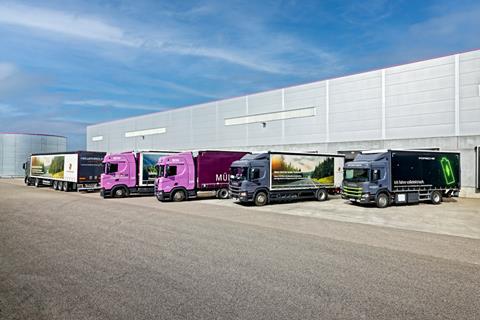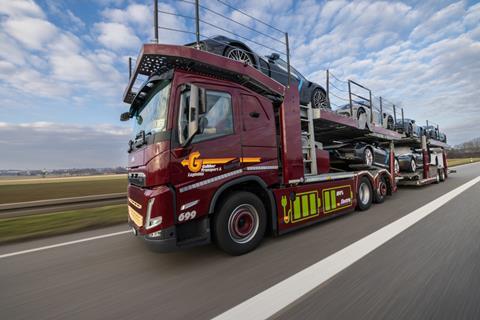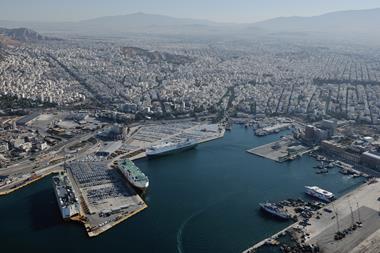Porsche is using six new electric trucks to transport production materials between its German plants in Zuffenhausen, Weissach and Leipzig. Porsche’s logistics partners Keller Group, Müller – Die lila Logistik and Elflein have also committed to operating the electric trucks using renewable electricity.
In addition, Galliker is also using an etruck to deliver finished Porsches from the Zuffenhausen plant to Switzerland.

The etrucks will join an existing fleet of 22 trucks supporting plant logistics running on biogas. Porsche also revealed it is testing the use of synthetic fuels made from hydrotreated vegetable oil (HVO100) in a four-year trial supervised by Karlsruhe Institute of Technology (KIT) and involving Müller – Die lila Logistik. In that trial 12 trucks from its existing fleet will run on the fuel around the Zuffenhausen plant.
The logistics company is running the 12 trucks using the HVO100 fuel provided by Neste and developed from residual and waste materials, which meets the current requirements of the Renewable Energy Directive II (RED II). Porsche said that no disadvantages have been identified compared to conventional diesel fuel, neither in terms of fuel consumption nor regarding engine reliability.

Porsche said the trucks have covered more than 1m km as part of the project and according to certified measurements by KIT this has saved more than 800 tons of CO2. The trucks operate a shuttle service in the greater Stuttgart area and have been used in parallel with diesel-powered trucks on identical routes to measure performance and savings.
“Decarbonisation is an integral part of our sustainability strategy,” said Albrecht Reimold, member of the executive board for production and logistics at Porsche. “The use of trucks with alternative drives and fuels is an important step toward achieving our ambitious goals. In doing so, we are consciously opting to use a mix of drive types that are appropriate to how the vehicles are deployed.
Porsche is also using rail for moving parts and components to plants or for transporting new vehicles to the ports of export.

























![Global[1]](https://d3n5uof8vony13.cloudfront.net/Pictures/web/a/d/s/global1_726550.svgz)














No comments yet